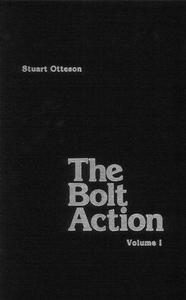
Free Download Stuart Otteson - The Bolt Action: A Design Analysis, Volume I
Wolfe Publishing Company | 1985 | ISBN: 0935632212, 0935632239 | English | 300 pages | PDF | 249.02 MB
The detailed inner workings of the bolt action remain unfamiliar to many shooters, despite its long history as a military and sporting arm. Exactly what distinguishes it as a breech mechanism? Other actions seat, lock, and fire the cartridge, and then extract and eject the empty case as does the bolt act ion.
One is tempted to conclude that it is the lockup, where rotation engages locking projections of the bolt and receiver. Yet, many other action types have also utilized the turning bolt. Examples include the gas-operated Garand MI, the straight-pull Canadian Ross, and the lever-action Model 88 Winchester.
What defines the bolt action is the unique combination of the turning bolt and an integral operating handle which allows the direct application of pressure in proportion to the situation. Thus, not only is great power available, but it is under the complete control of the shooter.
A 2 to 2% inch knobbed handle gives the operator leverage to turn the bolt. This leverage is in turn multiplied by the internal cams. Since bolt-knob movement over a quarter-turn usually exceeds 3 inches, and seating and extracting a cartridge and cocking a firing unit involve only fractional displacements, considerable power is possible, without intermediate linkage.
The internal helical-cut cams permit the bolt and firing unit to act as lead screws during part of the opening and closing cycles, producing small but powerful axial displaiements...
Few draftsmen have so clearly and economically delineated firearms mechanisms. The drawings exemplify the study; they are done by working from the guns, not factory drawings, old blueprints or catalogs. In this book you will find lock times, spring rates and cam angles plus considerable historical content.
